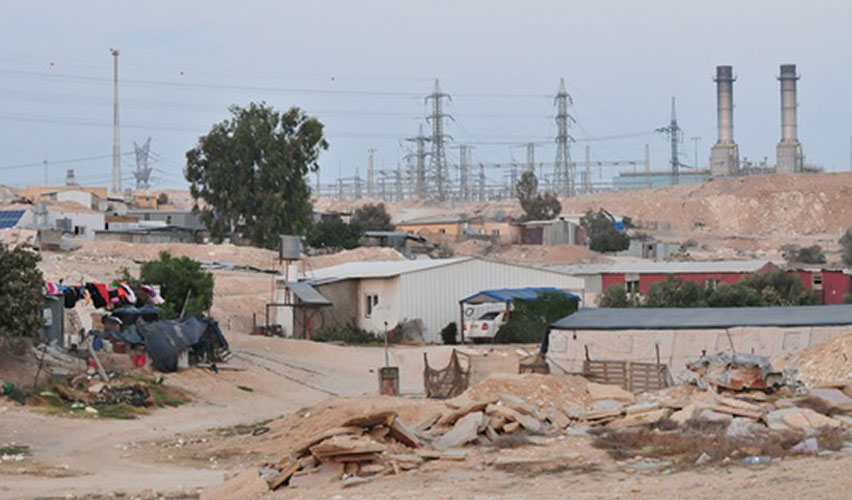This article was written by Avi Dabush, and was first published here. Translated from Hebrew by B. Lana Guggenheim.
Even optimists in Israeli society understand that something stinks in our state, the “Kingdom of Israel.” One option we have is to take responsibility to fix things and take action ourselves, without waiting for the government to act first.
“These are difficult, evil days. I no longer know the country where I was born” — so said Gouri, the “Palmach poet,” at the end of his book. If you identify with this statement, you might say that it says a lot about your political perceptions. But this statement also represents the general lack of trust and satisfaction the citizens of Israel have for their elected representatives, which is constantly dropping.
It seems that even for those optimistic ones so attached to the joyful aspects of Israeli society (and those exist in abundance; open your eyes and look for them!),even they must admit that this is an era of divisiveness, hatred, racism, bullying, political manipulation, legal and moral corruption, and more. Something stinks in Israel, and this time it’s not the garbage piled up in Beirut or some other convenient environmental excuse.
A significant change requires taking responsibility. The first decision facing a socially minded citizen is whether he should integrate with the system as it is to try to reduce injustice and evil from within, or to roll up his sleeves and tackle the whole thing head-on to promote social reform. And, assuming that you went with the second option, the next question is the content and process of this social reform. Any portion of our actions and intentions are likely to be a welcome influence.
There is an ancient warning from the Talmud in Masekhet Nedarim that warns “Take care of the children of the poor – for from them comes Torah.” Whoever is taking heed of this warning, it isn’t the hegemony of conservative politicians. Children from poor families are starving. They are coming from dire backgrounds, and do not have much to lose. Children of poor families force radical changes. So now, let us take this warning and make it instead a promise: If Torah comes from the children of the poor, then perhaps this is the path to deep, lasting changes in Israeli society?
After the last elections, welfare was a slogan among the left-wing, and the center said, more or less, “why would anybody vote for these periphery parties, when they are constantly knocking them?” This is a fundamental political error. But we in the Negev, we picked up the gauntlet. We met in Sderot, Ofakim, Be’er Sheva, Yeruham, and other places too. Our message was simple: anyone who wants to really know what we are about, and not just to tease and judge us prematurely, must leave their comfort zone and converse with us.
Very quickly we found ourselves in the midst of a fascinating discussion. Members of the peripheries, Jews and Bedouins, members of the right and left, religious and secular, etc., have dealt in depth with the realities of living in the periphery. We discovered that the peripheries of 2016 is not the same as the peripheries of the previous generation. We met with patriots, people connected to their spaces and communities. People who understood the growing gap between the center and the periphery, the lack of representation and policy planning and execution of government edicts, which is entirely disconnected to various groups.
We met people who are full of energy, who want to influence. People cognizant of the trends that mean people from the Negev or Galilee live an average of three fewer years than someone living in the center. Or the trends of such high unemployment, fifty percent higher in the Negev than the center. Or the average one-third lower salary. Investment per student is significantly lower by several hundred percent. The public transport system is also failing. Poverty is overall growing in the periphery, and shrinking in the center.
We met people who held a deep understanding that making significant change requires taking responsibility, who understood the connection between the groups in the Israeli periphery, both geographically and socially. People who know that action means not waiting for the government, or waiting for the prosecute to make a move and promote policy changes at the highest levels.
In the coming months we intend to continue to invest in and strengthen existing communities and their regional infrastructure. We continue reaching diverse communities, going door to door, holding neighborhood meetings in Sderot, Rahat, Kiryat Gat, Carmiel and so on. We built groups that collect research, and then informs and disseminates this information on the state of Israel’s periphery.
This will connect to all the political struggles at various levels, from community health services and the construction of a hospital in the Negev, to the promotion of two long-term solutions to security and peace in the western Negev, and a new map of suburban building in the periphery. We believe that just as these communities were built in the desert, so to the peripheries will be open to pushing a welcome change in Israeli society.







Leave A Comment